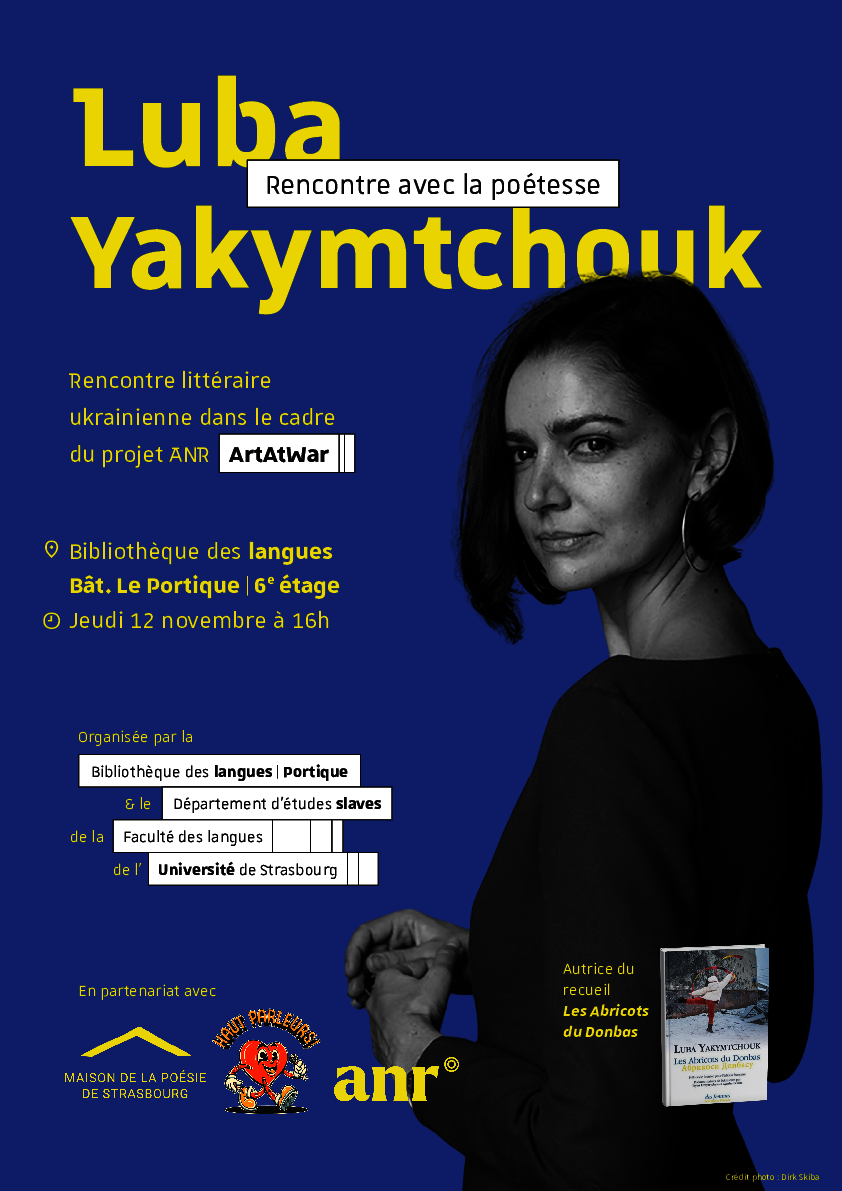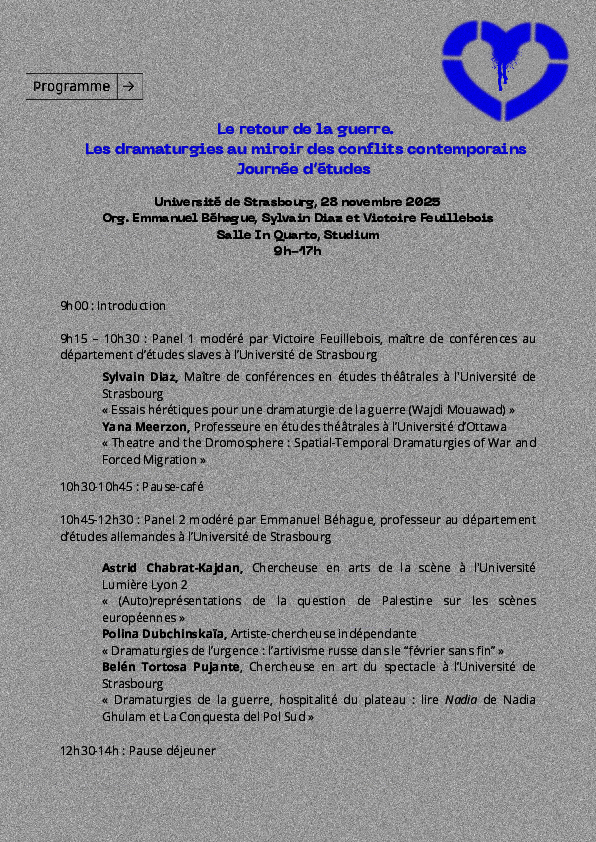Introduction
Founded in 1966, the Research Group on Oriental, Slavonic and Modern Greek Studies (Groupe d'études orientales, slaves et néo-helléniques – GÉO, UR 1340) is one of Europe's leading centres for oriental, slavonic and modern Greek studies. A multidisciplinary team of the highest calibre, it promotes intercultural, interdisciplinary, inter-university and international research. Its teacher-researchers, who specialise in Arabic, Hebrew, Persian, Turkish, Slavic, Modern Greek, Japanese, Chinese and Sanskrit studies, produce a wide range of scientific work focusing on the linguistics, literature, history and civilisation of the cultural areas concerned.
Doctoral and master's students benefit from research training in the form of a monthly seminar on a chosen common theme, study days and colloquia. The research work of the teacher-researchers and young researchers is published in 2 specific collections run by the unit and housed by the scientific publishing house Presses universitaires de Strasbourg (PUS): Oriental, Slavonic and Modern Greek studies, and Classics of Eastern Europe, the Balkans, the Middle East and Far East/Commentary, or by external publishers. The unit is headed by a director, assisted by a deputy director, 2 publication managers and 3 co-managers, 2 doctoral student training managers, 2 international relations managers and a communication and website manager.
Research Topics
Traces and erasures
The scientific project for the 2024-2028 five-year contract is structured around the common theme of "Traces and erasures" ("Traces et effacements").
For more than a century, 'trace-based knowledge' ("connaissance par traces") has been the epistemological foundation of scholarly history, according to the famous definition given by Langlois and Seignobos in their Introduction aux études historiques : "We only know about past events from the traces that have been preserved of them. It is true that the historian observes these traces, which we call documents, at first hand; but, after that, he has nothing more to observe; he then proceeds by way of reasoning, in order to reach as accurate a conclusion as possible about the facts, based on those traces." (re-ed. 1992: 67). This epistemological approach, going from traces to facts, which spread from history to all the other human and social sciences, has been subjected many times since the age of triumphant positivism to 2 major questions. What is a 'trace'? Is it simply a remnant of the past, a vestige that has been 'preserved' for the immediate 'reading' of the attentive observer - a heritage that needs to be preserved for future generations - or is it the observer who distinguishes, demarcates and "invents" (in the sense of "finds" or "uncovers") the traces that will form the basis of his or her scientific reconstruction? And how do we move from 'trace' to 'fact'? What is the nature of the reasoning behind it? Doesn't it come under the heading of an "indiciary paradigm" (Ginzburg), leading to results that are always incomplete and imperfect, constantly having to be reworked, rather than a laboratory experiment that can be reproduced ad infinitum? Moreover, the digital revolution, with its new economy of trace, memory and forgetting, invites us to ask these questions again.
3 topics have been identified: the status of the trace as a vestige (1), and of the trace as an index (2) will be questioned. Then, the trace to erasure, and back (3), because the trace carries within it what has been and the potentialities of what has been erased from it, to reflect on the question of the trace as ultimately being intrinsically the fruit of processes, a sign of erasure, pointing towards what has been fragmented or has disappeared.
Major events and works
- Emilia Koustova et Alain Blum, Déportés pour l'éternité. Survivre à l'exil stalinien, 1939-1991, Éditions de l'EHESS et Ined éditions, 2024
- Victoire Feuillebois, Maître Tolstoï : l'instituteur dont vous ne voulez pas, CNRS éditions, 2024
- International seminar "Deciphering Japanese cursive scripts", organised in partnership with the European Association of Japanese Resource specialists (EAJRS) and the National Institute of Japanese Literature (NIJL), University of Strasbourg, 17-19 April 2024
- Study day "Engineering Imperial Memories. Putin's History Politics in Comparative Perspective", 8 April 2024
- Thomas Boutonnet and David Lemler (eds.), Politique et sociétés au miroir de l'alimentation, PUS, 2023
- Rodolphe Baudin et al. (eds.), Russia, Europe and the World in the Long Eighteenth Century, Strasbourg, PUS, 2023
- Daniela Campo (with E. Bianchi) (ed.), "Take the Vinaya as your Master": Monastic Discipline and Practices in Modern China, Brill, 2023
- Boris Oguibénine, with contributions from Katarzyna Marciniak, A New Buddhist Hybrid Sanskrit Reader, Harvard Oriental Series - Opera Minora 15, Georgias Press, 2023
- International Colloquium "Intersecting Epistemologies, Captive Epistemologies: Turkish and Islamic Studies", University of Strasbourg, 16-17 June 2023
- International Colloquium "Isolement et espace dans les mondes orientaux, slaves et néo-helléniques", University of Strasbourg, 3-5 May 2023
- Sandra Schaal, Discovering Women's Voices: The Lives of Modern Japanese Silk Mill Workers in their own Words, Brill, 2022
- Renaud Soler, Ecrire, initier et transmettre, Institut français d'archéologie orientale, 2021
Prizes and distinctions
- 2023, Victoire Feuillebois, Les Espoirs de l'Université scientific prize
- 2023, Antonin Bechler, Prix Maurice-Betz
- 2022, Renaud Soler, Prix de thèse, lettres et sciences humaines "toutes spécialités", awarded by the Chancellerie des Universités de Paris
- 2021, Sandra Schaal, Prix Watsuji Tetsurô pour la culture (Japan)
- 2020, Victoire Feuillebois, Prix Guy Ourisson



